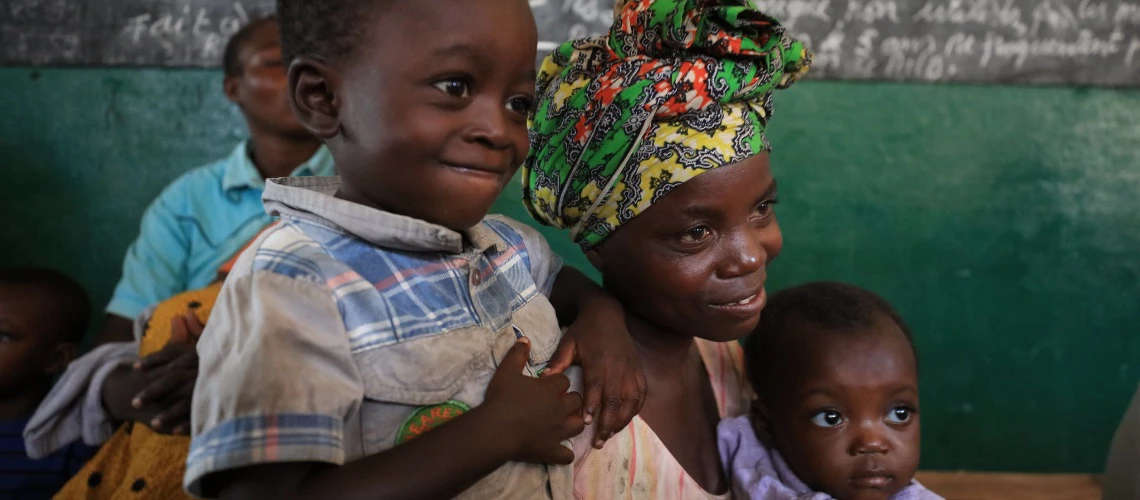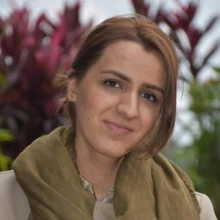 Weak systems to manage public finances limit effective budget planning and hampers efficient, equitable and transparent spending on health. Copyright: Global Financing Facility
Weak systems to manage public finances limit effective budget planning and hampers efficient, equitable and transparent spending on health. Copyright: Global Financing Facility
Ensuring adequate financing for essential health services is critical for building resilient and equitable health systems. Amid multiple global crises, growing fiscal austerity and an agenda that has long been underfunded, how can countries maintain, increase and direct money to serve more women, children and adolescents?
In many countries, weak systems to manage public finances limit effective budget planning and hampers efficient, equitable and transparent spending on health. Combined with weak capacity to prioritize essential health services, the needs of women, children and adolescents go unmet. The situation is exacerbated by fragmented donor aid that is not well aligned with country health priorities. Efforts to strengthen country capacity to track resources often do not link to national budget cycles or support advocacy for long-term, more sustainable reforms.
Governments have a lot on their plates: prioritize investments, spend efficiently, mobilize more resources, and report on results across diverse data platforms. Without reliable and harmonized health financing data, it is challenging for countries to strengthen this stewardship role.
The way forward
There is a growing movement to chart a different way forward and it’s already working. With support from the Global Financing Facility (GFF) and the World Bank, governments are strengthening public financial management functions and health resource tracking.
Shedding light on health resources is especially useful for policymakers and development partners, but also for civil society who advocate for more accountability and transparency in health spending. Countries such as Central African Republic, Democratic Republic of Congo and Rwanda have used health financing data to inform policy and ensure resources reach women, children and adolescents most in need.
However, achieving sustainable change requires commitment and innovative thinking that places countries at the forefront. Based on feedback from countries and a growing recognition of the need for more joined-up partner efforts to better support country leadership, four key principles are emerging that are important for the World Bank, GFF and others to recognize and support.
1. Ensuring health resource tracking systems serve country priorities is critical
Governments and development partners often have different data needs for health financing. It is important for countries to articulate needs upfront and communicate their priorities. Equally important is for partners to reduce inconsistent data requests and align with the data countries are collecting for their own purposes. One solution is for countries to lead on the development of a minimum set of data that focuses on their health priorities and responds to multiple data reporting needs. This will help reduce the extra burden while ensuring both government and donors can achieve their goals.
2. Leveraging existing systems and strengthening digitization reduces fragmentation and ensures sustainability
While different country contexts and capacities mean that there is no one-size-fits-all approach, we do not need to reinvent the wheel. Building on existing public financial management and information systems reduces fragmentation and ensures countries are in charge of how they spend their health dollars. This reduces duplication of data collection and streamlines data to make it more relevant for decision-making. For example, the GFF has supported the Government of Liberia to connect data systems, especially digital platforms with financial information from governments and donors that has helped to align donor funds with country priorities.
3. Supporting local advocacy and strengthening country ownership drives demand for data use in decision-making
Government and community leaders who drive change can encourage data use across various government decision-making bodies. The GFF, together with the Global Fund, GAVI, PMNCH, and UHC2030, has supported the Joint Learning Agenda for Universal Health Coverage that brings together civil society organizations (CSOs) in Africa to promote and conduct budget advocacy. For example, in Malawi CSO advocacy has contributed to an increase in the health budget allocation from 9.4 to 12 percent of the national budget. Supporting champions and building capacity for public financial management within Ministries of Health can help them engage on larger reforms driven by Ministries of Finance.
4. Collective partner action is essential for more impactful support
With support from the GFF and the World Bank, countries can advocate for stronger engagement with development partners and more aligned technical assistance on health resource tracking and public financial management. This includes determining specific actions to channel new investments through government systems. In Sierra Leone, the government’s strong engagement with partners led to an agreement on key indicators and data that has informed shifts in financing towards primary healthcare and guided decisions around partner grants.
The stakes have never been higher as countries prioritize and finance health in a shrinking fiscal space. These principles provide a framework for countries and partners to reflect on actions needed for more resilient and equitable health systems.
To build on the collective partner action, the GFF in collaboration with the World Bank and the Global Fund will host a session during the Annual Health Financing Forum to spotlight the importance of country leadership and donor alignment. Registration information is here.
To receive weekly articles, sign-up here





Join the Conversation